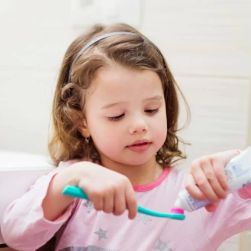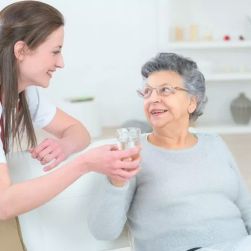Good oral health is crucial for everyone, but it becomes particularly significant for the elderly, especially those with limited mobility. As the population ages, the need for tailored dental care solutions for seniors increases. This is not only to maintain their oral health but also to ensure their overall well-being. Unfortunately, limited mobility can pose significant challenges in accessing regular dental care, leading to untreated oral issues and impacting their quality of life.
In the United States, around 15 million seniors have mobility limitations that can impede their access to proper dental care. This highlights the importance of addressing the unique needs of this demographic. Therefore, understanding and implementing strategies to effectively manage their oral health is essential. This article aims to provide insights and practical solutions to help manage oral health in elderly individuals who face such challenges.
Understanding the Impact of Mobility Limitations on Oral Health
Limited mobility can severely impact one's ability to maintain regular oral hygiene routines. Seniors with arthritis, osteoporosis, or other debilitating conditions may find it difficult to perform simple tasks like brushing and flossing. As a result, their oral health may suffer, leading to gum disease, cavities, and even tooth loss.
Moreover, mobility issues can make frequent trips to the dentist challenging, exacerbating the problem. According to a study by the National Institute on Aging, seniors with limited mobility are less likely to visit a dentist regularly compared to their more mobile peers.
Adapted Oral Hygiene Routines for Seniors
For seniors with limited mobility, adapting oral hygiene routines is essential. Electric toothbrushes with larger handles can aid those with grip issues, making brushing easier. Additionally, interdental brushes can be an excellent alternative for flossing, as they can be easier to handle for individuals with dexterity issues.
It is also important to ensure that oral hygiene products are easily accessible. Organizing bathroom spaces to minimize the need for reaching or bending can significantly aid elderly individuals in maintaining their oral care routine.
The Role of Caregivers and Family Support
Caregivers and family members play a crucial role in assisting with the oral care of seniors with limited mobility. They can help by ensuring that the elderly person has the necessary tools and assistance to perform their oral hygiene routine effectively.
Education is key; caregivers should be trained in geriatric oral care to provide the best support. Regular check-ins to assist with brushing or to ensure dental appointments are kept can make a significant difference.
Accessibility to Professional Dental Care
Transportation challenges can hinder seniors from reaching dental clinics. Tele-dentistry and home visits are emerging solutions that can bring professional care to their doorstep. Many clinics now offer home care services specifically designed for seniors who find it difficult to visit the dentist.
Innovative solutions such as mobile dental clinics can serve those in remote or underserved areas, reducing the barriers these individuals face in receiving professional oral care.
Nutritional Considerations and Oral Health
Nutrition plays a pivotal role in maintaining oral health. A balanced diet, rich in essential nutrients, can help protect against gum disease and tooth decay. For elderly individuals, ensuring they receive the right nutrients can be part of their overall health strategy.
Seniors might require dietary adjustments if they experience difficulties chewing or swallowing. Smoothies or nutrient-rich soups can be alternatives that provide essential nutrients while being gentle on the gums and teeth.
Innovative Technologies and Products for Senior Oral Care
The advancement in oral care technologies has led to the development of products specifically geared towards seniors. Water flossers, mouthwash dispensers with easy-pump systems, and other assistive devices are designed to aid those with limited physical abilities.
Furthermore, online platforms provide tutorials and guidance to both caregivers and seniors on the best practices for using these innovative products effectively.
Conclusion: Prioritizing Oral Health in Elderly With Limited Mobility
In conclusion, managing oral health in elderly people, particularly those with limited mobility, requires a multifaceted approach. By adapting oral hygiene routines, involving caregivers, enhancing access to professional dental care, and considering nutritional needs, seniors can maintain optimal oral health.
It's important for family members, healthcare providers, and the community to collaborate and prioritize the dental care of seniors. Practical steps, such as adopting innovative products and relying on supportive resources, can make a significant difference. For more resources and support, visit Dentistry Toothtruth.



